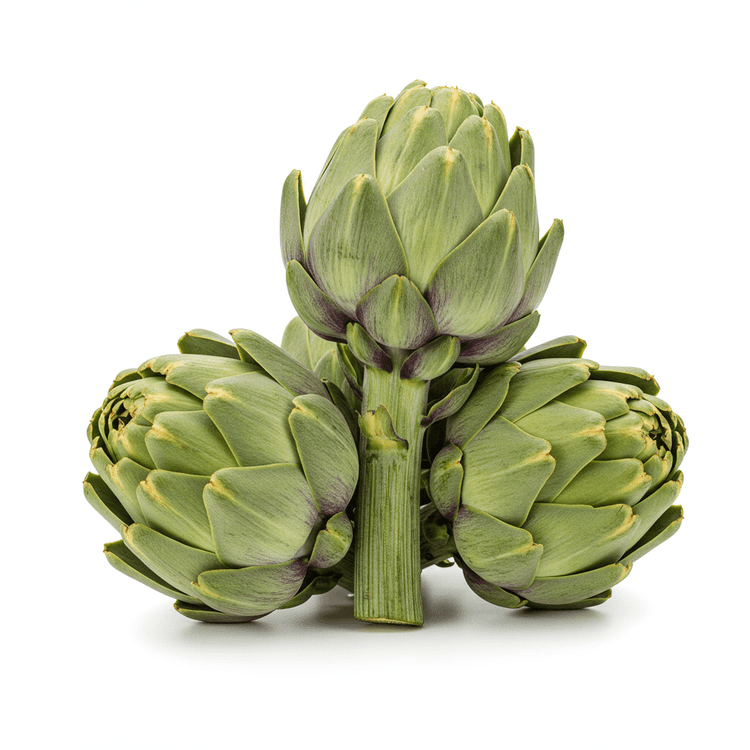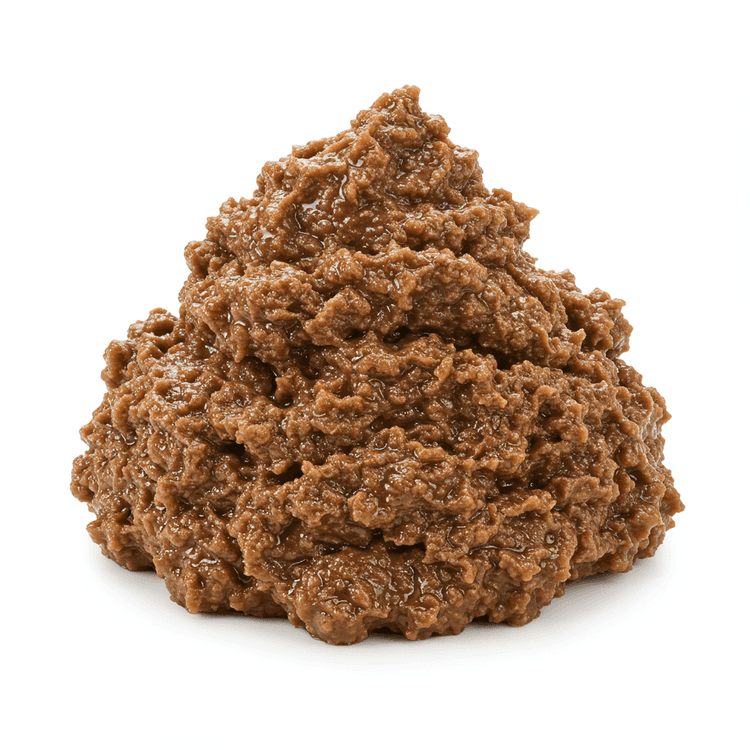
Artichoke
The artichoke, a visually striking and unique vegetable, is actually the edible flower bud of a thistle plant. Its tough, overlapping green petals (bracts) surround a fuzzy center called the 'choke,' which sits atop a meaty heart. When cooked, the artichoke offers a subtly nutty, slightly sweet, and herbaceous flavor. The texture varies, with the heart being tender and the base of the petals providing a satisfying chew. Fresh artichokes are available seasonally and are prized for their distinct taste and culinary versatility. Learning how to cook fresh artichokes opens doors to delicious and healthy meals.
Common Uses
- Steaming artichokes whole is a classic preparation method. The cooked petals are then dipped in melted butter, aioli, or other sauces, and the tender heart is savored at the end. Steamed artichokes are a simple yet elegant appetizer or side dish.
- Artichoke hearts, whether fresh, canned, or jarred, are frequently added to salads. Their mild flavor complements a variety of greens, dressings, and other vegetables, adding a touch of sophistication.
- Marinated artichoke hearts are a popular ingredient in antipasto platters and charcuterie boards. Their tangy, briny flavor pairs well with cured meats, cheeses, and olives.
- Artichoke hearts can be incorporated into pasta dishes, such as creamy artichoke and spinach pasta or a simple pasta tossed with olive oil, garlic, and artichoke. They add a delicate flavor and texture to the dish.
- Grilled artichokes offer a smoky and charred flavor profile. After partially cooking, the artichokes are grilled until tender and slightly browned, then served with a squeeze of lemon juice or a dipping sauce.
- Artichoke hearts make excellent pizza toppings, lending a unique flavor and visual appeal. They can be combined with other Mediterranean-inspired toppings such as olives, sun-dried tomatoes, and feta cheese.
Nutrition (per serving)
Nutrition (per serving)
Calories
64.0kcal (3.2%)
Protein
3.5g (7%)
Carbs
14.3g (5.2%)
Sugars
1.3g (2.6%)
Healthy Fat
0.2g
Unhealthy Fat
0.1g
% Daily Value based on a 2000 calorie diet
Nutrition (per serving)
Calories
64.0kcal (3.2%)
Protein
3.5g (7%)
Carbs
14.3g (5.2%)
Sugars
1.3g (2.6%)
Healthy Fat
0.2g
Unhealthy Fat
0.1g
% Daily Value based on a 2000 calorie diet
Health Benefits
- Rich in antioxidants to help protect against cell damage and chronic diseases.
- High in fiber, promoting healthy digestion and regulating blood sugar levels.
- Good source of vitamin C, supporting immune function and skin health.
- Contains prebiotics that nourish beneficial gut bacteria for improved gut health.
- May help lower bad cholesterol levels, contributing to heart health.
- Provides essential minerals like potassium and magnesium, important for maintaining healthy blood pressure.
Substitutes
Chefadora AI is here.
Experience smarter, stress-free cooking.
Storage Tips
Fresh artichokes are best used soon after purchase. To store, sprinkle with a little water and place them in a plastic bag in the refrigerator. They can typically last for up to a week this way, but check for signs of spoilage like dryness or mold. Cooked artichokes should be refrigerated promptly and used within a few days. Avoid storing artichokes in aluminum containers or cookware, as they can cause discoloration.
Marnirni-apinthi Building, Lot Fourteen,
North Terrace, Adelaide, South Australia, 5000
Australia

